Contention follows any Kyoto Animation production; adoration and scorn is heaped upon them as a studio as much as their output (or absence thereof). Hyouka is their next work after Nichijou (or the K-On! movie for chronology purists) and initially drew ire for its glacially sedate pace as well as one of the protagonist's aesthetic similarity to fan favourite Mio.
Following its own tempo, the series is content to plod determinedly along sometimes wallowing in the most pedestrian of storylines while others frolicking through names and motives with little care for foreshadowing or context. Ostensibly this is a mystery show with each case being either a one-shot or stretched out to three episodes or more. The former are the most forgettable and while the latter may comprise the bulk of the series, it isn't until well into the mid teens that characters begin to hit their stride.
An opening salvo serves up the uninspiring lead Oreki whose extended drawl and lethargic attitude may be true to it's light novel source but it means that interest has to come from the other three members of the "Classics Club". Satoshi and Mayaka are early favourites, providing some much needed levity and energy to tiresome "mysteries" around the school but end up being arguably the strongest aspect of the show with a denouement that is as infuriatingly inconclusive as it is entirely in-line with the whims of a modern teenager.
Then there's Chitanda.
The previously mentioned Mio-alike is the typical Japanese Beauty archetype with straight, jet-black hair (a feature not lost on the animators who evidently poured hours into the gratuitous keyframes of the first episode), a polite and naive disposition and daughter of a respected local land baron. And until the closing story arcs, this is all there is to know of her. The obvious foil to Oreki's "energy conservation", she is a disturbing and precisely engineered porcelain doll; refined by the studio's trial runs with Asahina in Suzumiya Haruhi, Mio in K-On! and the conglomeration of the Lucky Star cast. Like a Stepford wife who wandered into the wrong franchise, Chitanda lives on the wrong side of the uncanny valley for a sizeable wedge of the series and seems too perfect with her insidious quirks targeted directly for the audience's gooey, lucrative core.
Then the longest arc in the series, the "Juumonji Incident", drops the veil and lets the characters, and most importantly the subtext, of the writing breathe. The six episode bonanza - set during a bustling, technicolor school festival - gradually unfurls with sidestories for each character that eventually dwarf the middling missing item mystery at its centre. The conclusion to which is as obtuse as it needs to be, finally dispensing with any illusion of the audience being able to predict the outcome. But most importantly: Chitanda begins to show cracks and dents in her character that takes away that acrid new-car smell and potentially reveals an actual person. She never totally loses that disconcerting more-human-than-human disposition but the delicate relationship between her and Oreki is given form until the wistful and almost bittersweet final episode.
Oreki could of course never take the dead-pan, straight-man crown from Kyon in Haruhi so his position as a lazay, detective savant goes straight for the geek "the mind is my strongest organ!" dogma. But like Chitanda he eventually softens into something close to a likeable. He still plays the straight-man to Chitanda's drowned world of castes and etiquette but is happy to be caught up in rather than pushing against it.
Chitanda's world is at the heart of the series and is the lesser seen part of Japan, not the aggrandised hustle of a city or a fantastical school setting but that oft observed clash between the historical and the modern. Drenched in sunsets it's still picturesque as only Kyoto Animation could do - but that is linked inextricably with that lackadaisical pace and mindset. Most importantly though its a world of subtlety, where getting caught in a situation that could be conceived as compromising would be damaging long past any initial embarrasment. Where the ancient squabbles of a town need to be quelled to save face. Where the solution to a mystery isn't as important as the investigation of the meanings and subtext and, in the end, is never as cut and dry as one would wish for.
A strong ending however doesn't make up for a lacklustre opening. Perhaps the culture that is teased into drama provides a natural, soft barrier to that all important subtext. Kyoto Animation's works can be slow starters and are nearly always divisive, but by pitching themselves as an artisan studio rather than a money-chasing powerhouse, they sidestep the thorny problem of cultural debt many other studios accrue through endless, fan-pandering regurgitations. Hyouka then has a slow start, a strong middle and rocky end but proves that if you are to have faith in any studio, you could do a lot worse than KyoAni.

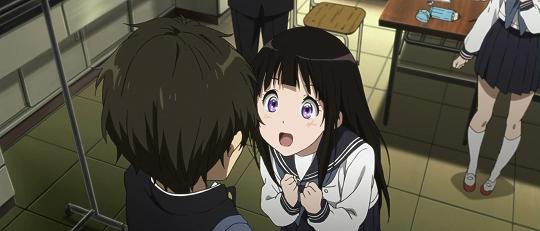
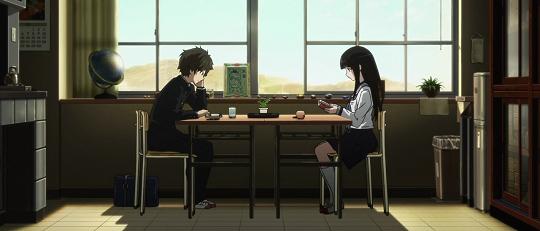
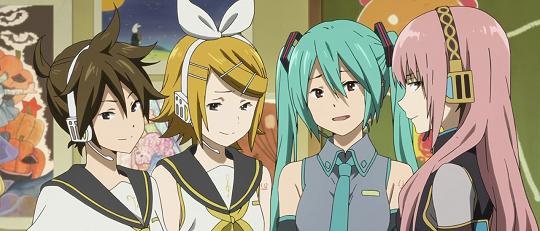
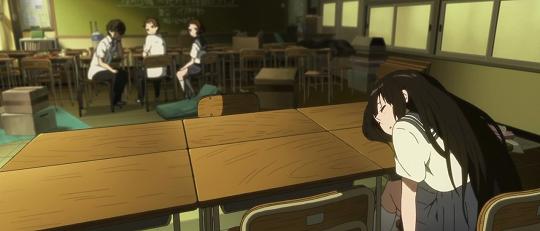
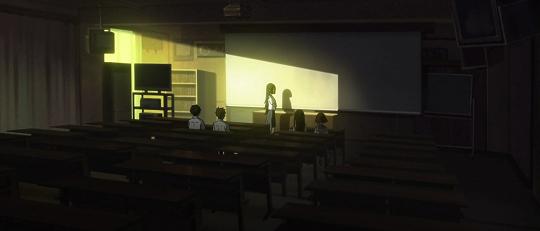


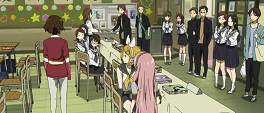

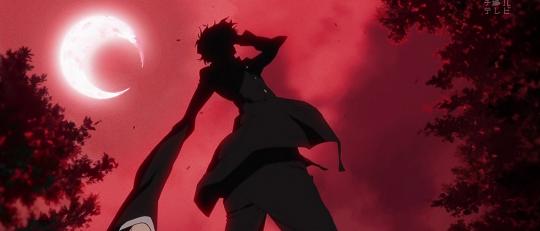
This, I think, is the only thing I'd say against Eru's character (who was, ultimately, the main draw for me initially...before the wonderful dynamic between them all started to really work its magic). She is, well, a little *too* perfect. Even real-life actresses, singers, idols or whatever have Real Personalities and, deep down, we all know they do ordinary things when out of the public eye like buying bread and milk from the shops, losing their temper over something stupid or watching TV in their pyjamas at home without brushing their hair. I tend to prefer my fictional heroine's a bit more....not necessarily flawed, but more human. Portraying Eru in the way she was here felt a little artificial, as though the studio were playing it too safe with whatever sort of fans they think they have.
When the cracks do show it's all the more rewarding of course, but I wish they'd happen more often.
Overall I really enjoyed this show for the iyashikei overtones, making it my little monday evening ritual for easing myself back into the working week. The mysteries were tame but it all looked lovely, right up to that Shinkai-esque sunset at the end. I'm going to miss it.